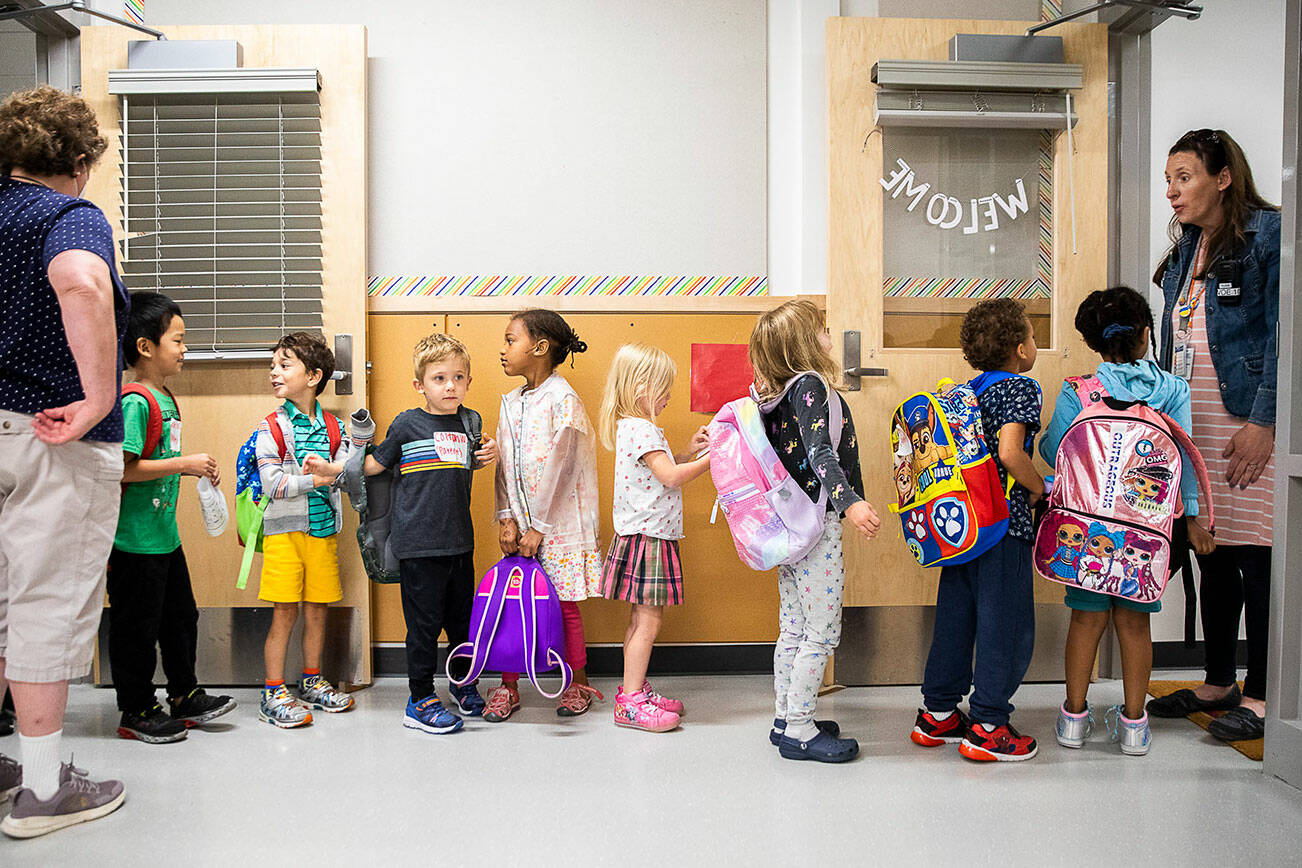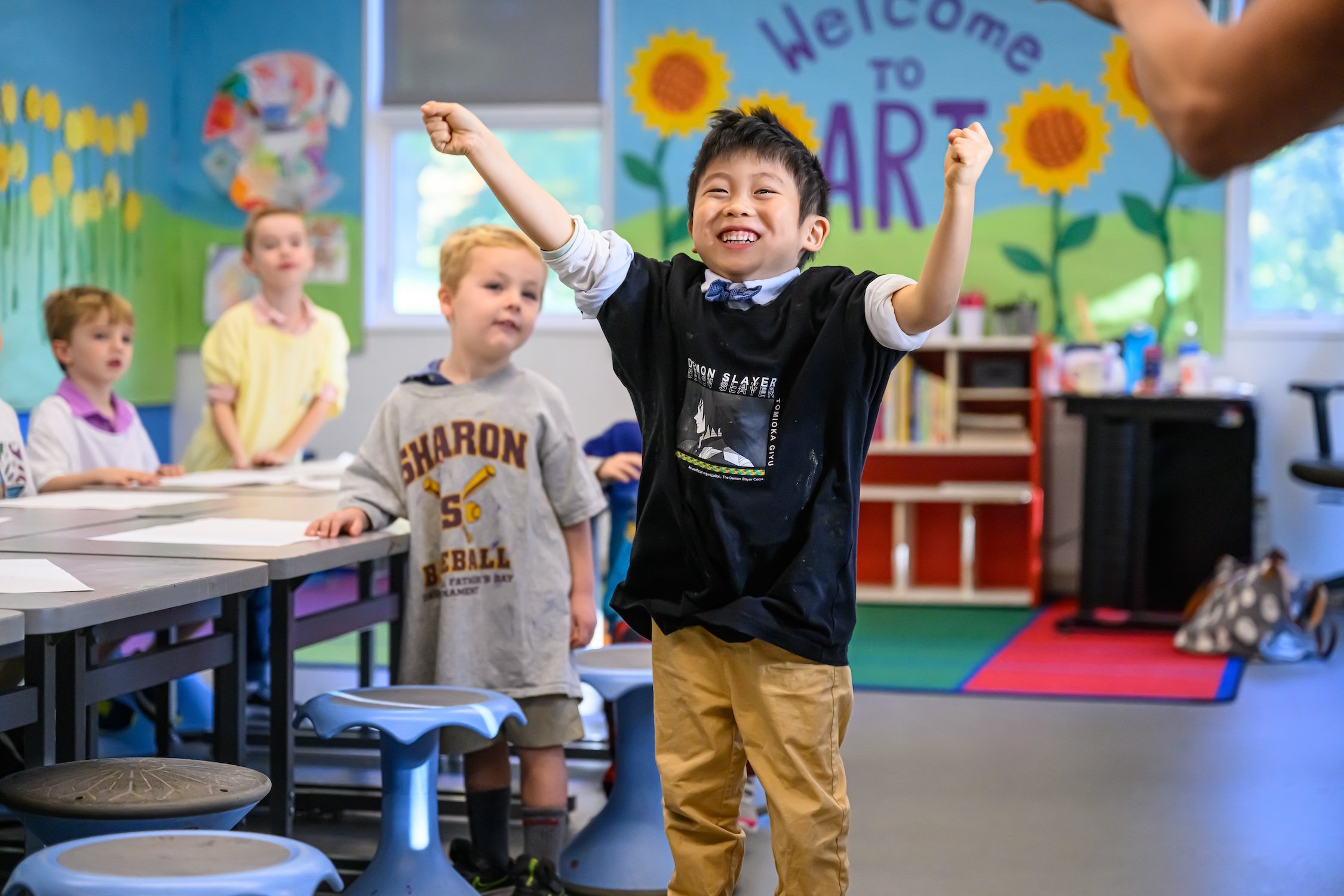Digital play that motivates Private School learners
Wiki Article
The Significance of Interactive Tasks in Elementary School Education
Interactive activities play a crucial function in elementary school education and learning. They engage trainees and enhance learning outcomes. With group jobs and hands-on experiments, pupils experience the material in a practical method. This technique provides to varied learning styles and promotes necessary abilities. The benefits expand beyond academics. Exploring the deeper effect of these activities discloses their importance fit young students' futures. What makeovers take place when trainees actively get involved?Enhancing Involvement With Interactive Understanding
Conventional mentor approaches have their advantages, interactive understanding substantially improves pupil engagement in quality institution education. This approach urges active participation, allowing students to submerse themselves in the discovering process. By utilizing group tasks, hands-on experiments, and technology-driven resources, instructors develop an environment where students feel more linked to the product.Interactive discovering assists in partnership amongst peers, fostering communication skills and teamwork. It also provides to diverse understanding designs, making certain that visual, acoustic, and kinesthetic students can all prosper. In addition, pupils are most likely to retain information when they actively take part, instead of passively obtaining expertise.
This vibrant technique not only makes discovering enjoyable however also instills a sense of ownership in trainees regarding their instructional trip. As they involve with the material, their interest and inspiration to discover increase, laying a strong structure for future academic success.
Creating Essential Assuming Abilities
Interactive understanding not just enhances engagement however likewise acts as a catalyst for developing important believing skills in elementary school trainees. With tasks such as problem-based knowing, disputes, and hands-on experiments, students are encouraged to assess details, assess different point of views, and formulate reasoned conclusions. These interactive experiences call for trainees to doubt assumptions, leading them to assume even more deeply concerning various subjects.
Additionally, interactive activities frequently present real-world situations that challenge pupils to apply their expertise artistically. By steering with these difficulties, they learn to identify relevant info and make notified choices. This process cultivates not just specific crucial thinking yet likewise encourages students to express their believed procedures, enhancing their capability to connect properly. Consequently, interactive knowing environments grow a generation of crucial thinkers who are better prepared to deal with complex troubles in their future scholastic and professional endeavors.
Promoting Cooperation Among Peers
Promoting cooperation amongst peers is vital in grade school education, as it enhances synergy and interaction abilities. Taking part in team activities helps trainees build trust fund and regard for each other, laying the foundation for efficient partnership. Analytic with each other enables pupils to learn from each other and establish a cumulative approach to obstacles.Team Effort and Interaction Abilities
Effective team effort and communication skills are crucial elements of a successful grade school education. Involving in interactive tasks motivates pupils to collaborate, share concepts, and fix problems together. Such experiences promote the advancement of critical communication abilities, allowing youngsters to share their thoughts clearly and pay attention actively to others. Via synergy, pupils find out to value varied viewpoints, fostering a sense of community and shared responsibility. Structured group tasks, whether in academics or creative jobs, improve peer communications, instructing kids exactly how to negotiate functions and solve disputes. As a result, these abilities not just add to a positive class setting yet likewise prepare students for future joint ventures in college and the office. In general, synergy and interaction are foundational to all natural advancement in quality institution.Building Depend On and Regard
Building trust fund and regard among peers serves as a cornerstone for effective cooperation in elementary school atmospheres. When trainees really feel valued and respected by their schoolmates, they are more probable to engage proactively in group activities. Interactive tasks, such as team projects and cooperative games, supply possibilities for students to gain from each other, fostering a feeling of neighborhood. This setting urges open interaction, permitting pupils to express their ideas and opinions without worry of judgment. As count on develops, pupils come to be much more happy to share responsibilities and support each various other's discovering. Eventually, growing an ambience of trust fund and regard improves not just scholastic end results but also social advancement, equipping trainees with crucial social abilities for their future undertakings.Problem-Solving Together
Joint analytic engages pupils in critical reasoning and synergy, vital abilities for their scholastic and individual development. When students interact to deal with challenges, they find out to connect properly, regard varied viewpoints, and utilize each various other's staminas. This process enhances their capacity to assess issues from different angles and create imaginative solutions. Group activities, such as science experiments or mathematics difficulties, promote active involvement and promote a sense of neighborhood. As trainees team up, they additionally build social skills, discovering to bargain and endanger, which are critical for future communications. Eventually, analytical together grows a supportive learning environment, anchor encouraging pupils to take possession of their education and learning while preparing them for collective undertakings past the class.Motivating Imagination and Technology
Motivating imagination and advancement in grade college education and learning can be significantly enhanced via hands-on learning experiences. These tasks permit trainees to engage straight with products and concepts, fostering creative thinking. Furthermore, collective group tasks can boost diverse concepts and remedies, even more nurturing an innovative setting.Hands-On Knowing Experiences
A wide variety of hands-on knowing experiences greatly enhances imagination and technology in elementary school education. Involving students in useful tasks enables them to use theoretical knowledge in real-world contexts, cultivating deeper understanding. By manipulating products and tools, youngsters establish important analytical skills and find out to assume outside the box. These experiences motivate interest and inspire trainees to explore their interests better. Additionally, hands-on activities can bridge various topics, linking science, art, and math in significant means. This interdisciplinary strategy motivates pupils to see connections and assume artistically. Ultimately, hands-on knowing experiences support a generation of trendsetters, equipping them with the abilities and self-confidence required to tackle future difficulties and contribute to culture in special ways.Collaborative Group Projects
Hands-on knowing experiences normally lead to the incorporation of collaborative group projects, which play an essential function in promoting creativity and innovation in elementary school education. These tasks motivate pupils to interact, sharing ideas and perspectives, which boosts analytic skills and vital thinking. With collaboration, pupils discover to interact effectively and regard varied perspectives, important skills for their future. Furthermore, group jobs supply opportunities for students to experiment with various functions, enhancing their adaptability and self-confidence. Participating in this participating setting allows them to explore their creative thinking, pressing the boundaries of standard discovering. Ultimately, collaborative team jobs not just improve the academic experience but additionally prepare trainees for real-world obstacles that require team effort and cutting-edge reasoning.Building Confidence and Self-reliance
As trainees participate in interactive activities, they commonly find possibilities to construct confidence and freedom. These activities, whether they entail hands-on tasks, role-playing, or analytic tasks, urge trainees to take campaign and express their concepts freely. By joining such experiences, students find out to trust their capacities and make choices without relying only on guidance from educators or peers.Additionally, interactive tasks promote a sense of ownership over understanding. When students deal with difficulties collaboratively or individually, they create essential thinking skills and durability. This procedure not just improves their understanding of the topic yet additionally encourages them to take threats in Extra resources their learning trip.
As they navigate various interactive circumstances, trainees progressively lost their insecurity, leading the way for increased self-esteem - Private School. Inevitably, these tasks click for more play an essential duty in nurturing certain and independent students, outfitted to deal with future academic and personal difficulties
Developing a Favorable Class Environment
While cultivating a positive classroom atmosphere is essential for reliable discovering, it needs willful effort from educators to develop a room where trainees feel risk-free, recognized, and involved. A positive environment motivates partnership, enabling students to share themselves without anxiety of judgment.Educators can achieve this by establishing clear assumptions, advertising mutual respect, and recognizing specific payments. Incorporating interactive activities further enhances involvement, making finding out more dynamic and pleasurable.
In addition, a caring atmosphere supports social-emotional advancement, as pupils learn to browse connections and fix problems. Teachers play a vital function in modeling positive actions and strengthening a culture of kindness and inclusivity.
Regularly Asked Inquiries

Just How Can Moms And Dads Assistance Interactive Knowing in the house?
Moms and dads can support interactive learning at home by providing appealing materials, encouraging hands-on tasks, incorporating educational games, cultivating discussions, and creating a nurturing atmosphere that advertises inquisitiveness and exploration in their kids's finding out experiences. (Private School)What Kinds Of Interactive Tasks Are Most Reliable?
Hands-on projects, collective video games, role-playing scenarios, and educational modern technology applications are among one of the most effective interactive tasks. These involve trainees, boost vital believing abilities, and advertise synergy, ultimately promoting a much deeper understanding of various subjects.Just How Do Interactive Activities Satisfy Different Discovering Styles?
Interactive tasks engage visual, auditory, and kinesthetic students by incorporating diverse techniques. These activities facilitate comprehending via hands-on experiences, collective conversations, and aesthetic help, permitting trainees to soak up details according to their preferred discovering style.What Are the Costs Related To Implementing Interactive Activities?

Executing interactive tasks sustains costs such as materials, training for instructors, innovation upgrades, and prospective center alterations. Budget restraints can also affect the regularity and variety of tasks used to pupils in instructional setups.
Just How Can Teachers Evaluate the Impact of Interactive Discovering?
Teachers can assess the influence of interactive learning via observations, trainee feedback, efficiency metrics, and comparative evaluation of test ratings prior to and after application, ensuring an extensive understanding of involvement and understanding retention improvements.With activities such as problem-based discovering, debates, and hands-on experiments, trainees are motivated to assess details, evaluate various perspectives, and formulate reasoned verdicts. Interactive activities frequently existing real-world circumstances that challenge students to use their knowledge artistically. Engaging in interactive tasks urges trainees to work together, share ideas, and fix issues with each other. Interactive activities, such as team tasks and cooperative games, supply chances for students to find out from one another, fostering a sense of neighborhood. As pupils engage in interactive tasks, they frequently discover chances to build confidence and self-reliance.
Report this wiki page